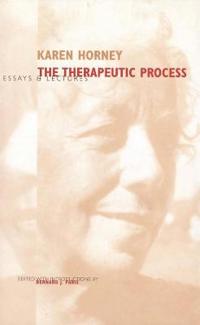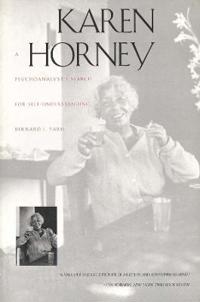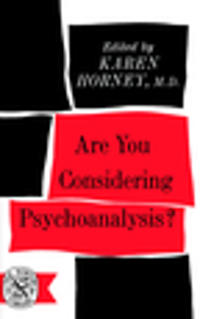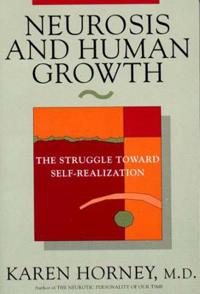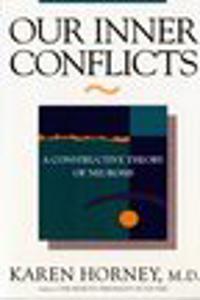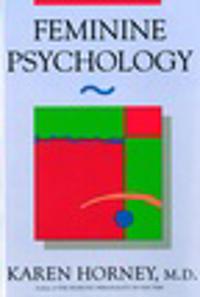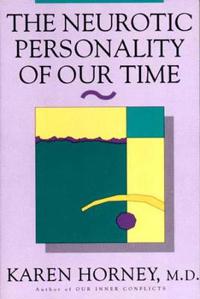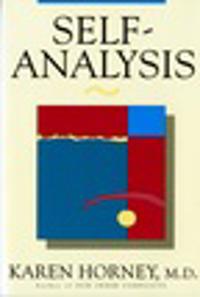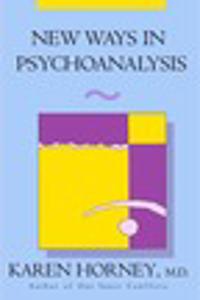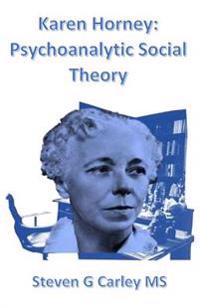The Therapeutic Process (Inbunden)
avKaren Horney, Bernard J. Paris, Karen Horney
ISBN: 9780300075274 - UTGIVEN: 1999-03This volume of essays provides a record of Karen Horney's ideas about the therapeutic process. She discusses countertransference phenomena and the ways in which a therapist's personality can influence the healing process, and offers advice based on her own experience.[...]
Karen Horney (Häftad)
avBernard J. Paris
ISBN: 9780300068603 - UTGIVEN: 199608Karen Horney (1885-1952) is regarded by many as one of the most important psychoanalytic thinkers of the twentieth century. Her early work, in which she quarreled with Freud's views on female psychology, established her as the first great psychoanalytic feminist. In her later years, she developed a [...]
Are You Considering Psychoanalysis? (Häftad)
avKaren Horney
ISBN: 9780393001310 - UTGIVEN: 196204Explains the nature, schools, procedures, and goals of psychoanalysis to assist the prospective patient in understanding, accepting, and successfully experiencing the therapeutic process.[...]
Final Lectures (Häftad)
avKaren Horney
ISBN: 9780393307559 - UTGIVEN: 199108Essays discuss the attention of psychoanalysts, free associations, understanding the patient, the psychoanalytic process, and resistance[...]
Neurosis and Human Growth (Pocket)
avKaren Horney
ISBN: 9780393307757 - UTGIVEN: 199105Karen Horney was born in Hamburg, Germany, in 1885 and studied at the University of Berlin, receiving her medical degree in 1913. From 1914 to 1918 she studied psychiatry at Berlin-Lankwitz, Germany, and from 1918 to 1932 taught at the Berlin Psychoanalytic Institute. She participated in many intern[...]
Our Inner Conflicts (Pocket)
avKaren Horney
ISBN: 9780393309409 - UTGIVEN: 199210One of the most original psychoanalysts after Freud, Karen Horney pioneered such now-familiar concepts as alienation, self-realization, and the idealized image, and she brought to psychoanalysis a new understanding of the importance of culture and environment. Karen Horney was born in Hamburg in 188[...]
Feminine Psychology (Häftad)
avKaren Horney
ISBN: 9780393310801 - UTGIVEN: 199402In this collection of papers, many previously unavailable in English, she brings to the subject of femininity her acute clinical observations and a rigorous testing of both her own hypotheses and those formulated by Freud. The topics she discusses include frigidity, the problem of the monogamous ide[...]
The Neurotic Personality of Our Time (Pocket)
avKaren Horney
ISBN: 9780393310979 - UTGIVEN: 199401Her topics range from the neurotic need for affection, to guilt feelings and the quest for power, prestige and possession.[...]
Self Analysis (Häftad)
avKaren Horney
ISBN: 9780393311655 - UTGIVEN: 199410She discusses the driving forces in the neuroses, the different stages of psychoanalytic understanding, the patient's and the analyst's share in the psychoanalytic process, occasional and systematic self-analysis, and the realistic expectations of undertaking self-analysis.[...]
New Ways in Psychoanalysis (Häftad)
avKaren Horney
ISBN: 9780393312300 - UTGIVEN: 200008In this influential book, Karen Horney describes the ways that neuroses function as a peculiar struggle for life under adverse conditions--and how psychotherapy can help people free themselves from maladaptive ideas and behaviors. Using examples from her practice and writing in clear, accessible pro[...]

